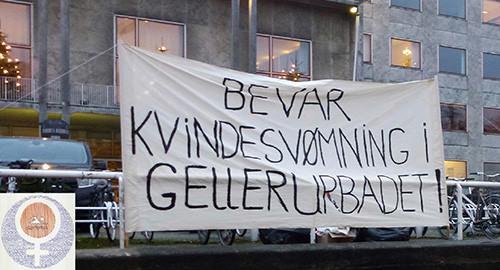Aarhus Municipality has decided to bring an end to gender-segregated swimming at its pools, despite the initiative being popular in Gellerup, an area with a high density of immigrants.
The lifting of the ban, which comes into effect this week, became a reality following a vote in which 26 of the 31 municipal council members voted in favour. Members of the two left-leaning parties, Radikale and Enhedslisten, were the only ones to vote against.
“I think there has been a debate about this for a long time now,” Gert Bjerregard, Venstre’s political spokesperson at Aarhus Municipality, told DR Nyheder.
“There are some people who want to discard some Danish values, and there is a large portion of City Hall who support those values to ensure better integration.”
Bjerregaard and Venstre proposed ending gender-segregated swimming in the spring of 2016, and the debate has raged formidably since then, particularly within the Muslim population, which is the most affected group.
READ MORE: More Danes getting into winter swimming
Totally Trump
Groups against the lifting of the ban have compared it to the anti-immigration sentiment being seen in the US at the moment with the ongoing travel ban drama.
“We think that you can draw parallels between Trump and Aarhus Municipality,” Elsebeth Fredriksen, the spokesperson for the group ‘Kvindesvømningens Venner i Gellerupbadet’ (‘Friends of Women’s Swimming in Gellerupbadet [swimmingpool]’), told DR Nyheder.
“That opinion they have regarding women’s swimming in Gellerup is quite misogynistic.”
The group organised a demonstration on the eve of the municipal vote, and some members wore the so-called ‘pussy hats’ that have become a key symbol in the fight of resistance against the new US president, Donald Trump.















